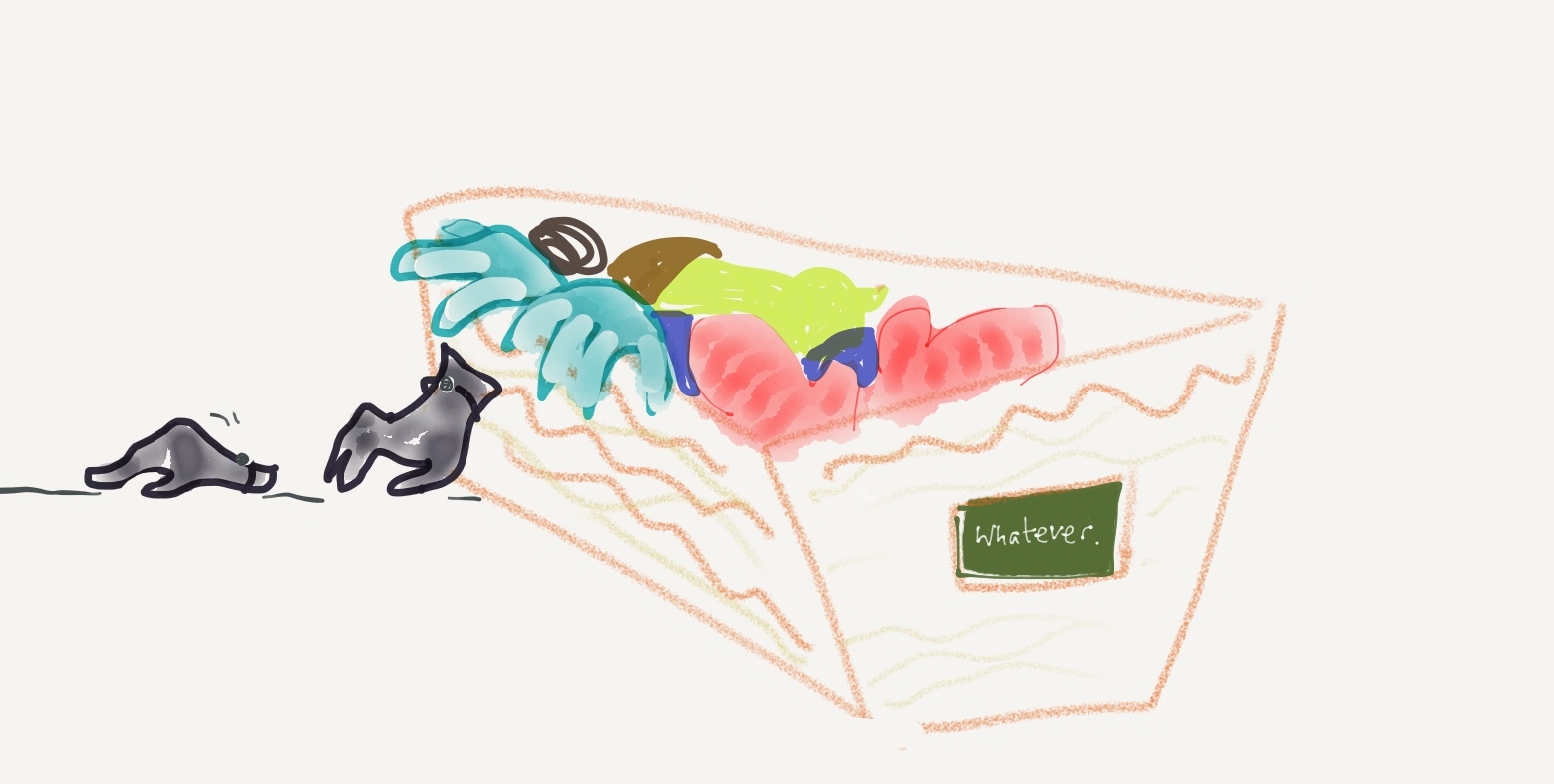A few updates:
I know you had a bunion removed on your right big toe around seven years ago. The new achy knob that is growing there reflects my opinion of the six pairs of dressy new shoes you have bought since.
The moles appearing every month on your back are part of my ongoing art project to make the shape of a pony.
Sigmund Freud once said, "The ego is ultimately derived from bodily sensations, chiefly from those springing from the surface of the body." Discuss with your friends over lunch and report back with their comments.
It was embarrassing to both of us a month ago when you used the Dyson dryer in the Yorkdale Shopping Mall washroom, noticed the skin on your hands no longer stayed in place but rippled upwards like a flowing veiny epidermal stream, and told everyone around about it including your 26-year-old daughter.
I have a story to tell you about that lump on your chest. It's called a 'Bible cyst.' I know the doctor told you it was a lump of intransigent fat but my version is less hurtful and more interesting. It was called a Bible cyst because in the old days a doctor making house calls would take a Bible from the family bookshelf and thwack it on the patient's chest to make the cyst disappear. Neat, eh? If you can't find a Bible in the house use the atlas that still has East Germany and Czechoslovakia in it.




